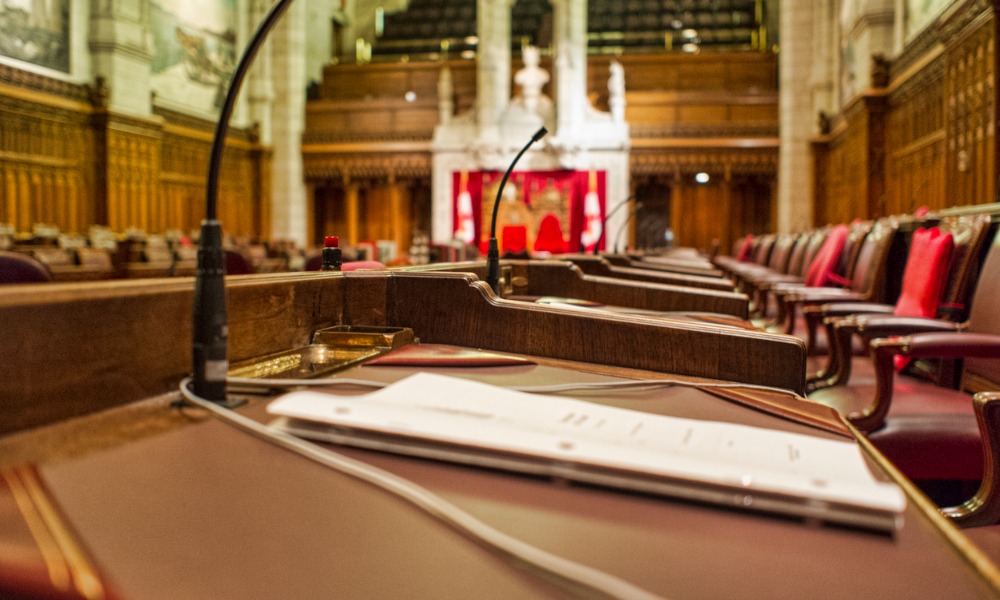The federal Divorce Act’s requirement for leave to appeal interim orders remains after the Supreme Court of Canada refused leave in a spousal support case today.
In Elgner v. Elgner, the Supreme Court dismissed Claude Elgner’s application for leave to appeal after he was ordered to pay a record-breaking interim spousal support order of $110,000 per month. He was also ordered to pay retroactive support of $3.36 million to his ex-wife.
Claude argued that under s. 21(1) of the federal Divorce Act, he could appeal the order as of right, which would overrule Ontario’s Courts of Justice Act. Section 21(1) states that “an appeal lies to the appellate court from any judgment or order, whether final or interim rendered or made by a court under this act.”
But the Ontario Court of Appeal disagreed, referring to s. 21(6) of the Divorce Act, which states that an appeal “shall be asserted, heard and decided according to the ordinary procedure governing appeals to the appellate court from the court rendering the judgment or making the order being appealed.”
Courts in British Columbia, Saskatchewan, and Quebec have ruled that leave is not required to appeal interim orders under the Divorce Act. However, courts in New Brunswick and Nova Scotia have made rulings in line with Ontario.
“It’s now clear in the province of Ontario that if you want to appeal an interim order under the Divorce Act, you need leave of the Divisional Court to get that right of appeal,” says Charles Beall of Bales Beall LLP, who represented the husband.
“[W]hatever ambiguity existed or difference of opinion existed, it’s been made clear,” he adds.
Golnaz Simaei, who represented Carol Ann Elgner with Julie Hannaford, says the SCC’s dismissal is significant as it allows the provinces to make their own interpretation of a federal statute. “In our view, what the Supreme Court of Canada is saying is that the Ontario Court of Appeal got it exactly right, which is that the provinces have the right and the discretion to control their own processes in determining whether or not leave should be required to appeal an interim order or not.”
In Elgner v. Elgner, the Supreme Court dismissed Claude Elgner’s application for leave to appeal after he was ordered to pay a record-breaking interim spousal support order of $110,000 per month. He was also ordered to pay retroactive support of $3.36 million to his ex-wife.
Claude argued that under s. 21(1) of the federal Divorce Act, he could appeal the order as of right, which would overrule Ontario’s Courts of Justice Act. Section 21(1) states that “an appeal lies to the appellate court from any judgment or order, whether final or interim rendered or made by a court under this act.”
But the Ontario Court of Appeal disagreed, referring to s. 21(6) of the Divorce Act, which states that an appeal “shall be asserted, heard and decided according to the ordinary procedure governing appeals to the appellate court from the court rendering the judgment or making the order being appealed.”
Courts in British Columbia, Saskatchewan, and Quebec have ruled that leave is not required to appeal interim orders under the Divorce Act. However, courts in New Brunswick and Nova Scotia have made rulings in line with Ontario.
“It’s now clear in the province of Ontario that if you want to appeal an interim order under the Divorce Act, you need leave of the Divisional Court to get that right of appeal,” says Charles Beall of Bales Beall LLP, who represented the husband.
“[W]hatever ambiguity existed or difference of opinion existed, it’s been made clear,” he adds.
Golnaz Simaei, who represented Carol Ann Elgner with Julie Hannaford, says the SCC’s dismissal is significant as it allows the provinces to make their own interpretation of a federal statute. “In our view, what the Supreme Court of Canada is saying is that the Ontario Court of Appeal got it exactly right, which is that the provinces have the right and the discretion to control their own processes in determining whether or not leave should be required to appeal an interim order or not.”







